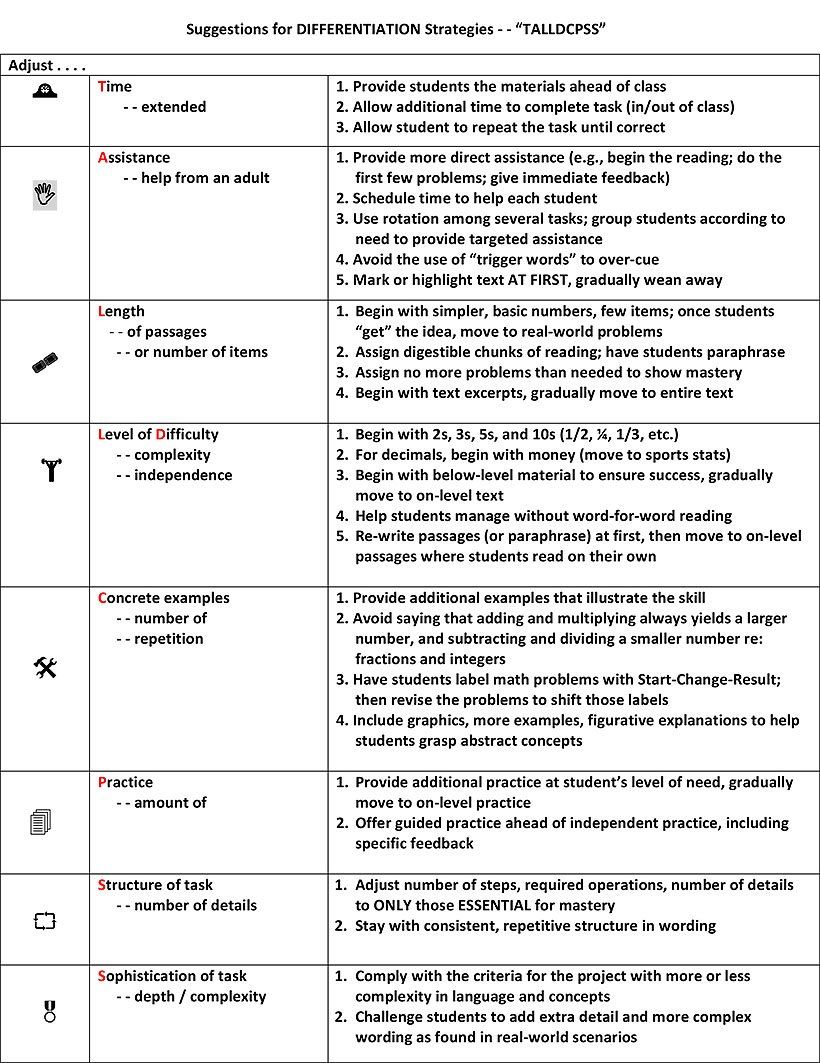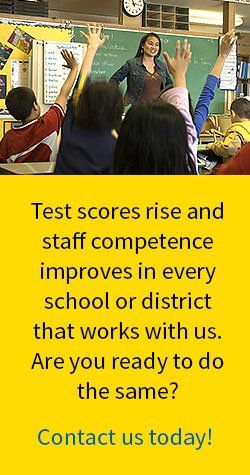Differentiation and RTI
The EdFOCUS approach to Differentiation is to help schools plan for different teaching-learning activities in advance—as part of the Unit Plan. Rather than devising a separate set of activities for students who struggle OR those excel, the idea is to plan for adjustments in the Unit itself. These differentiated activities must be appropriate to the various learning needs of individual students. It is not another name for tracking, since the “differentiation” is by the activity within a Unit and not “placing” students according to their ability. Effective differentiation is planned-for ahead of time—as part of every Unit Plan.
The EdFOCUS approach helps teachers provide some activities as a whole-group to provide common information and thus maintain the sense of “community.” Every student should be invested with equal importance and genuinely feel that the “community” is diminished with his or her absence. But students then need differentiated activities to process the new information, to practice the new learning and, finally, to apply what they have learned. One major differentiation is the final product or evidence of mastery. EdFOCUS shows teachers how to plan for a variety of products—each suited to the needs of students. For example, the same Unit Plan might include several options for students to show mastery, including a written summary, a verbal explanation, or an original diagram.
For RTI states, this approach provides for Tier 1 and 2 as well. In most inclusion classrooms, the special needs and general education teachers form a “co-teaching” partnership. In its most highly-developed stage, this co-teaching partnership is so seamless that an observer cannot tell which teacher is which—nor which students are “general” and which are “identified” as Special Needs.
EdFOCUS shows teachers how to differentiate within their Unit Plans by one or more proven strategies:
- the time allotted
- the amount and type of teacher assistance
- the length or number of the passages or problems
- the level of difficulty or complexity of the materials and problems—beginning simply but building developmentally (to ensure that the cognitive integrity of the standard is met)
- the concreteness of examples used and the number of repetitions
- the amount of practice included
- the structure of the response
- the level of sophistication or nuance required in the response

Close Your School’s Student Mastery Gap
Take the Self-Assessment
- All Ohio school districts are required to provide instruction so students can pass the Ohio State Tests (OST).
- When students fail to pass the OST tests, it reflects negatively on the school and the district as a whole.
Schedule a Consultation
- The EdFOCUS materials are written exclusively to the Ohio Standards and address the underlying level of thinking required for mastery.
- EdFOCUS materials are directly connected to the standards.
Improve Outcomes
- Classroom instruction is made more effective.
- District OST scores reflect mastery of content standards which generates public support and increases the state ranking.
Test scores rise and staff competence improves in every school or district that works with EdFOCUS.
Is your district ready to improve?
Contact Us
Is your school or district ready to improve student achievement?
Contact the EdFOCUS team today at (330) 842-0742.
©2023 EdFOCUS Initiative | Site Map | Privacy Policy | Accessibility

